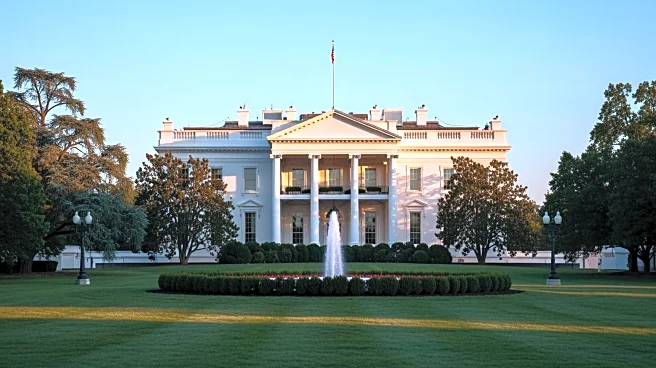What's Happening?
The White House has announced that the U.S. will suspend special port fees on Chinese ships starting November 10, as part of a trade agreement with China. This suspension follows a meeting between the U.S. and Chinese presidents, aiming to ease tensions
and promote trade. The fees were initially imposed under a Section 301 investigation into China's shipbuilding practices. In response, China will also suspend reciprocal fees on U.S. ships. The agreement includes commitments from China to purchase significant quantities of U.S. agricultural products, benefiting U.S. ports and the shipping sector.
Why It's Important?
The suspension of port fees marks a significant step in improving U.S.-China trade relations, potentially boosting the U.S. shipping industry and agricultural exports. By reducing trade barriers, the agreement could lead to increased economic activity and job creation in the U.S. The move also reflects ongoing efforts to address trade imbalances and foster cooperation between the two largest economies in the world.
What's Next?
The U.S. and China will continue negotiations on broader trade issues, including tariffs and shipping industry practices. The U.S. aims to revitalize its shipbuilding sector through agreements with South Korea and Japan, while China is expected to remove sanctions on certain U.S. shipping entities. The outcome of these discussions could shape future trade policies and economic strategies.
Beyond the Headlines
The agreement highlights the strategic importance of the shipping industry in global trade and the potential for diplomatic resolutions to trade disputes. It also underscores the interconnectedness of global supply chains and the need for international cooperation to ensure stability and growth.














